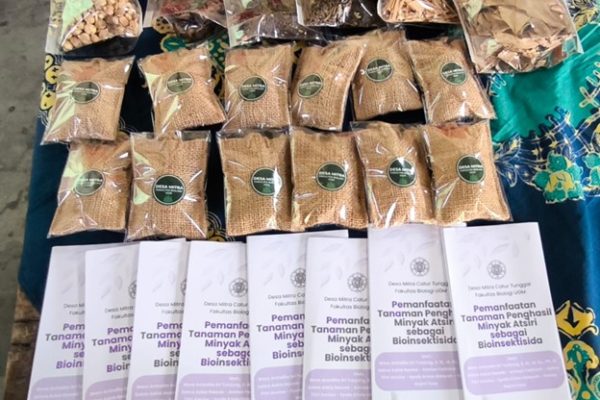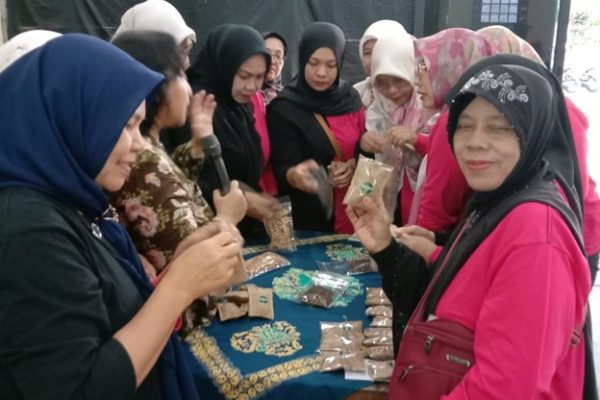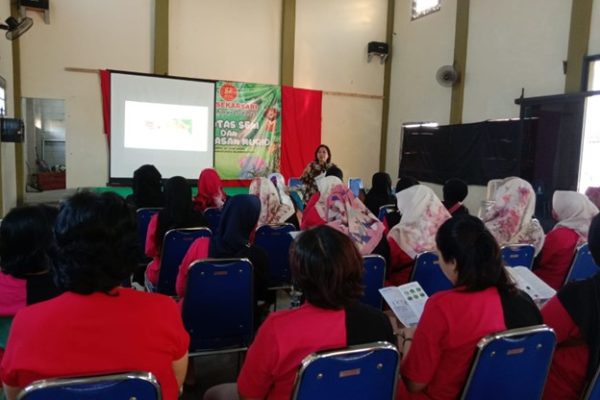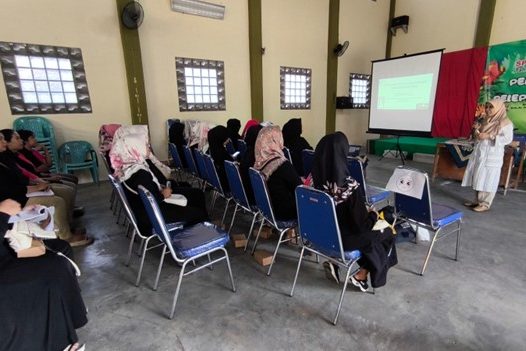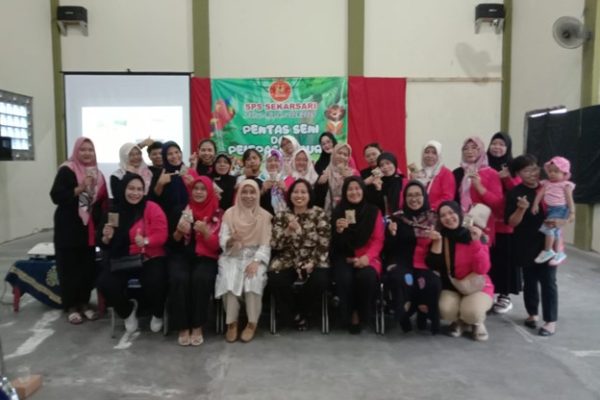The Community Service program of the UGM Faculty of Biology was held again on Friday, July 18, 2025, at the Balai Dusun Belimbing Sari in Caturtunggal Village, Depok, Sleman. Under the banner “Mosquito Vector Control through Biological Approaches and the Use of Essential Oils,” the event welcomed 35 enthusiastic local PKK members to participate in a series of engaging lectures and hands‑on sessions.
The Desa Mitra Caturtunggal teaching team included Dr. Dra. Rr. Upiek Ngesti W.A., B.Sc., DAP&E, M.Biomed (Animal Systematics Laboratory); Woro Anindito Sri Tunjung, S.Si., M.Sc., Ph.D (Biochemistry Laboratory); Nur Indah Septiani, S.Si., M.Sc., Ph.D (Animal Structure & Development Laboratory); and Sari Darmasiwi, S.Si., M.Biotech., Ph.D (Microbiology Laboratory).
Dr. Dra. Rr. Upiek Ngesti W.A. opened the program with an in‑depth overview of mosquito species and the dangerous vector‑borne diseases they transmit—such as dengue fever and malaria—along with their habitat and life cycle. She detailed biological control strategies using fish and other predators, physical measures via the “3M” method (emptying, covering, burying), and preventive chemical fogging. Her comprehensive presentation gave participants a clear understanding of the need to integrate multiple control methods.
The second session, led by Woro Anindito Sri Tunjung, S.Si., M.Sc., Ph.D., dove into the use of essential oils as natural mosquito repellents. In a style both lighthearted and informative, Dr. Woro defined what essential oils are, introduced various plant sources—such as lemongrass, kaffir lime, and basil—and outlined two practical approaches: planting repellent species in home gardens and crafting natural room fresheners. Participants were keen to follow her simple distillation steps and discuss how to apply them at home.
The highlight of the day was the hands‑on workshop, where attendees created aromatic sachets from dried ingredients—clove buds and stems, star anise, and lemongrass—packaged in rustic burlap bags. These sachets proved easy to make, cost‑effective, and both decorative and functional as mosquito deterrents. Light conversation and sharing of tips on preserving the scent for longer added warmth and camaraderie to the event.
Through this activity, the Faculty of Biology UGM puts into practice its Tri Dharma of Higher Education, particularly community service, while also supporting the Sustainable Development Goals: SDG 3 (Good Health and Well‑being), SDG 11 (Sustainable Cities and Communities), and SDG 17 (Partnerships for the Goals). It is hoped that the knowledge and skills gained will foster sustainable mosquito control efforts in Dusun Belimbing Sari and strengthen the community’s environmental health.

